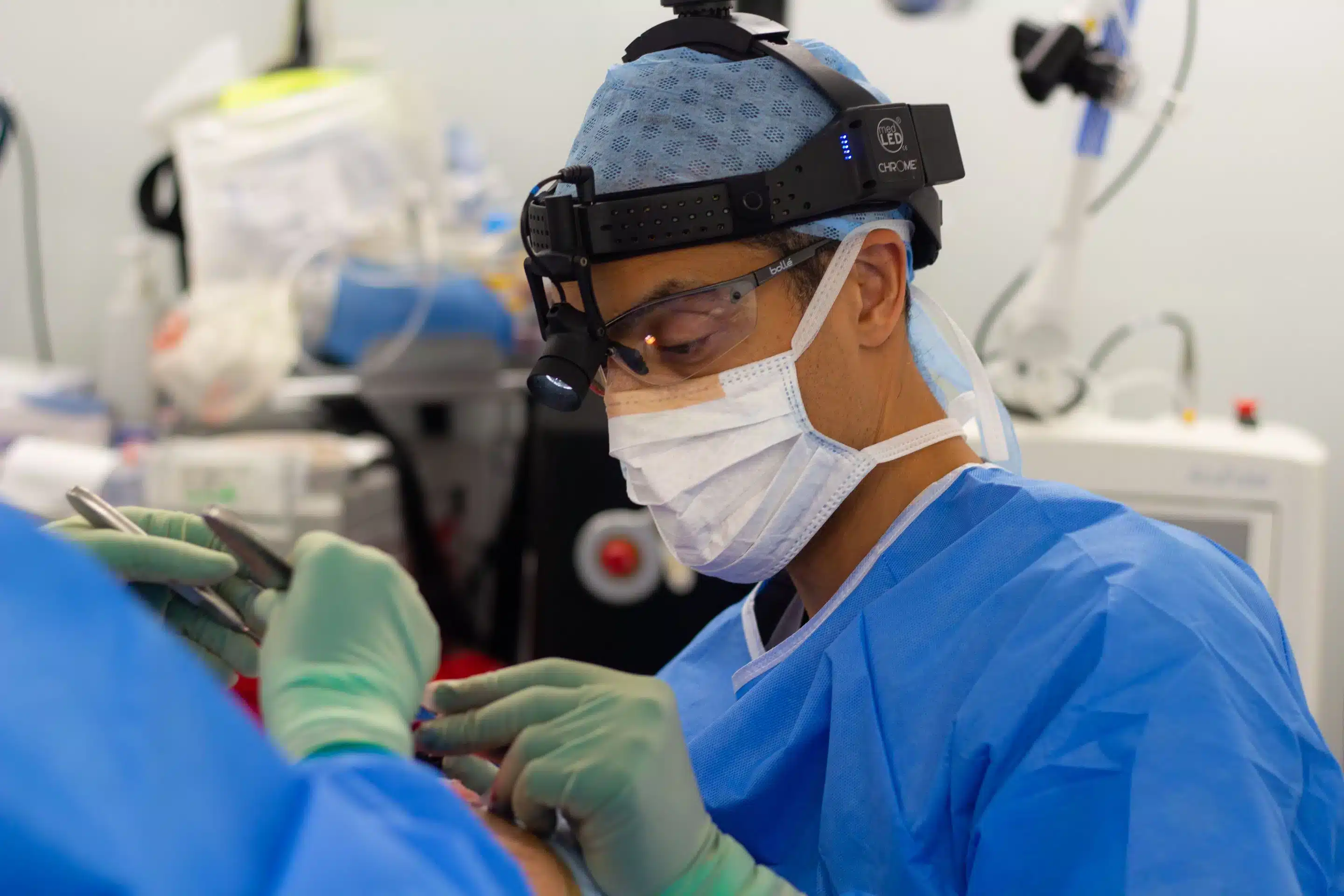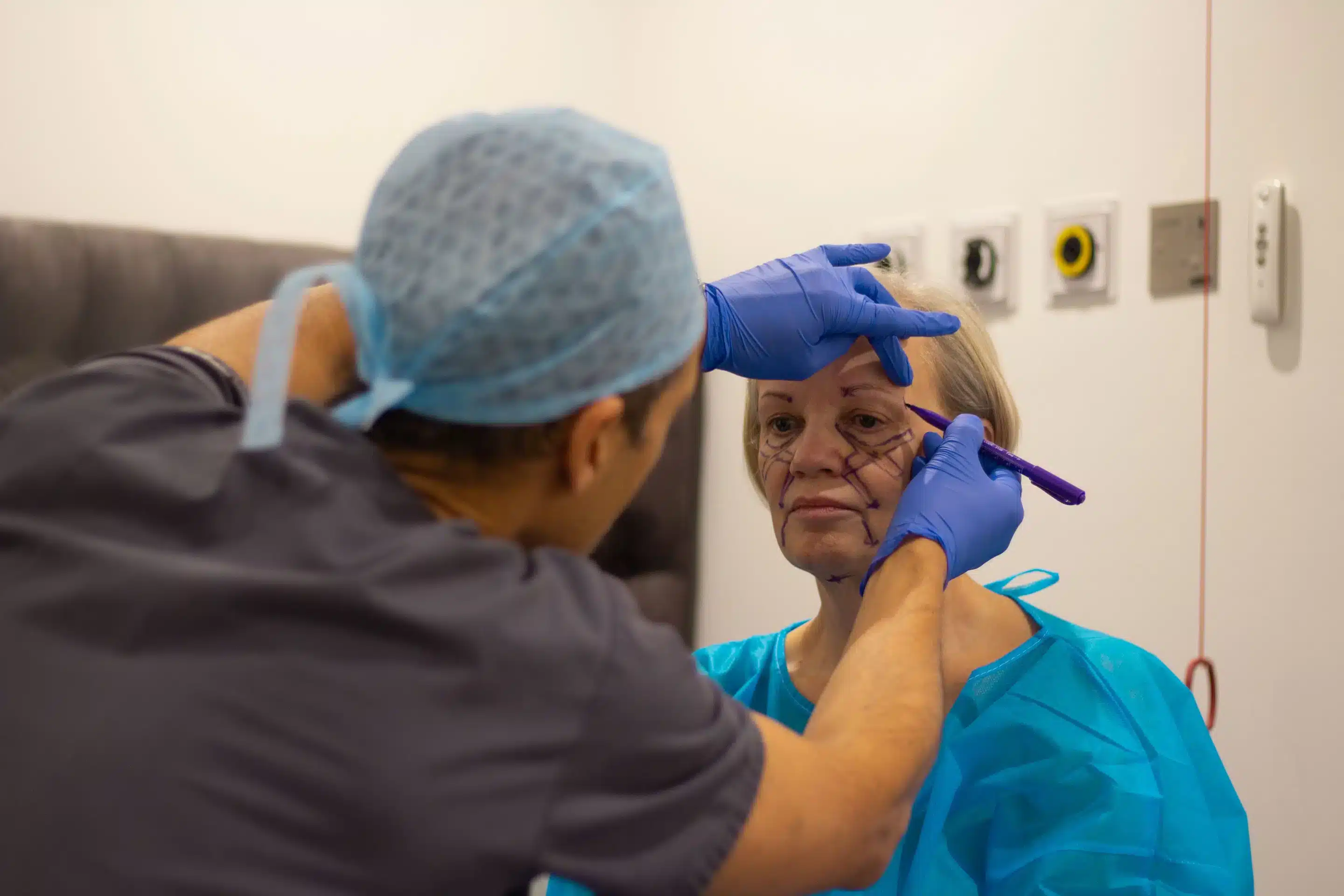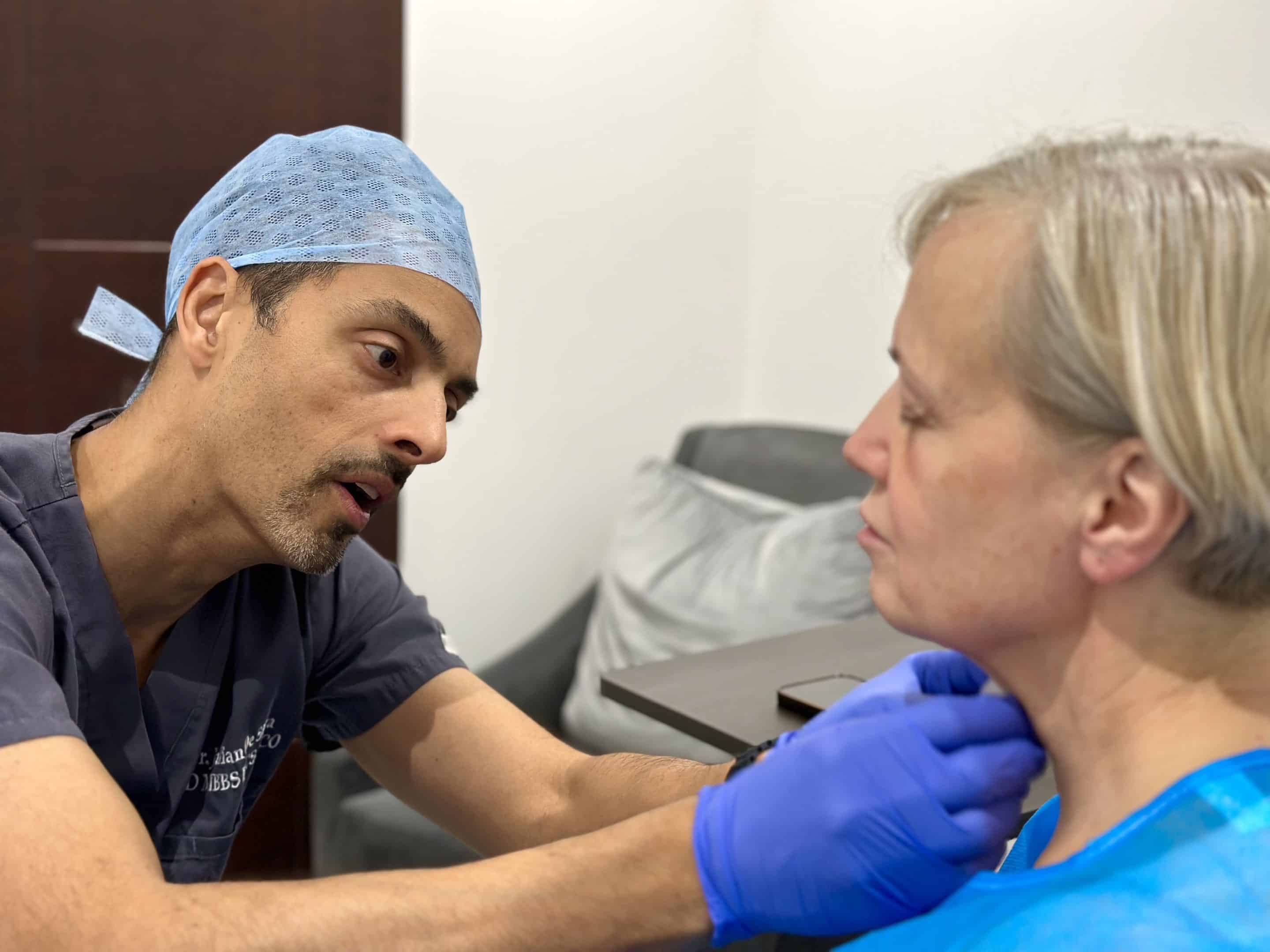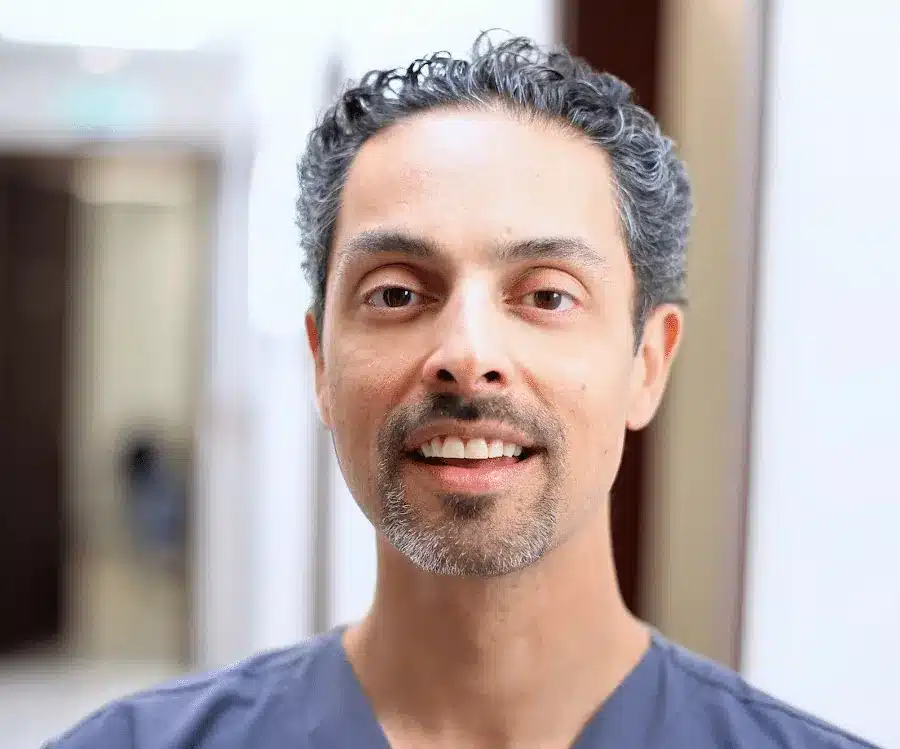1. What procedures would you recommend?
Dr De Silva recommends that every procedure must be tailored to your needs, there is no cooky cutter approach to facial surgery, what every person needs is determined by their individual characteristics.
Broadly speaking there are three groups of patients
I Patients who really notice one specific area: For example some patients may find their nose has always bothered them e.g. hump, or they have noticed bags in their lower eyelids or loose skin, or felt their jaw line is sagging with lose skin, or always been self-conscious about a small chin or large lip
II Some patients feel they are looking more tired and they just want to be generally refreshed, look like themselves just younger and less tired. Often there are 3 aspects 1. gravity 2. Volume replacement e.g fat transfer or fillers 3. Skin enhancement, fine lines, pores lose skin, may need laser resurfacing, PRP, radiofrequency or removal of loose skin
III Beautification or refinement. Patients who look good, they want to look ever better 1. Use principles of Golden ratio, Symmetry and Gender considerations (male jaw line and chin, women ogee curve, V-shaped jaw line 2. Facial Balance and symmetry 3. Enhancement of facial characteristics
2. How often do you perform these procedures?
Only complete facial procedures
Blepharoplasty aka eyelid surgery, nose job surgery aka Rhinoplasty & facelift and neck lift surgery and non-surgical facial treatments. I perform these procedures every day for my patients. i.e. Specialise only in face. Intricacy and fine detail in your face, for example a medical conference on rhinoplasty can be 5 days long, yes 5 whole days talking about nose jobs only!
3. Are there any before and after photos available?
Yes, many 100s of photos on our website of past patients.
We also have video diaries and testimonials of patients, who talk about anaesthesia and recovery from surgery.
Video diaries can be particularly helpful for nervous patients as each day patients talk about their experience and recovery.
Facelift Before & After Photos
Video Diaries
4. Can I speak to previous patients who have had this surgery?
Some patients ask us can we speak to previous patients.
Yes, we can help patients organise this.
You can also watch some of our patients talk about their experiences in the form of video diaries on our website.
Video Diaries
Patient Video Testimonials
5. How many pre-op appointments will I need?
Most patients have 2 preops, first appointment we discuss exactly what are you looking to achieve, realistic expectations, what is involved, what is the recovery, what are the relative risks, what can be done to speed up recovery.
2nd preoperative appointment, we recap the surgery, talk in more detail, answer any questions, complete gold standard tests before surgery, we complete everything you need in house (e.g. blood tests, heart tracing)
Some patients may require an additional appointment.
Patient who are travelling from overseas or long distances we try and combine appointment to reduce inconvenience.
6. What location will the procedure be performed?
The Centre, 23 Harley Street, we have a custom-built facility for facial cosmetic & plastic surgery. Harley Street has long been considered the medical area of excellence in London and has patients visit from all over the world seeking expert medial care. We have invested in state-of-the-art equipment that is continually updated. For example we have 3 working PRP regenerative medicine machines, 2x state of the art lasers for resurfacing.
7. Will my procedure require general anaesthesia or twilight sedation?
What does this mean, talk about general and sedation anaesthesia?
More than ten years ago Dr De Silva completed more procedure under general anaesthesia, however now almost all procedures can be completed under sedation anaesthesia. Sedation also known as Twilight sedation allows all patients are able to go home same day usually less than one hour after surgery, avoiding the issues and longer recovery associated with general anaesthesia. We believe twilight sedation is the future, less recovery time, less swelling or bruising, better patient experience, reduced risks such as DVT, clot in leg associated with general anaesthesia.
For more information please see:
8. What is the downtime associated with this procedure?
Depends on the procedure, most facial surgery we recommend have 2 weeks. Most swelling and bruising goes in 2 weeks.
If you have a wedding or very important event we recommend having 6weeks just in case.
For facelift surgery 3-weeks is recommended as some patients can have more swelling.
If you have more swelling there are things we can do to help recovery including, lymphatic drainage, medicines and oxygen therapy.
If you work with high definition film or cameras, actor or model more time is recommended as these do not hide even small amounts of swelling.
9. Is there a medical professional on call to answer any pre-op or post-op questions?
Yes, Dr De Silva provides a personal service, we appreciate having facial surgery is a big decision for our patients. We will support you on this journey, this is what we do every day for our patients.
10. How many follow up appointments will be required?
Most patients we see two or three times after surgery, 1 week, sometimes at 2weeks and 6weeks, and then some patients require additional follow up. However, for many patients we provide ongoing long term care, having surgery is a substantial decision for many patients and we provide ongoing are maintains the results of surgery long-term. Trust is the key element of undergoing surgery and we provide our patients with long-term maintenance after surgery as long as patients are happy to travel to see us! Many of our patients come back for additional facial procedures for years after surgery. Welcome to our family!
11. How long will it be before I see results?
Most patients see some results even one week after surgery, however expectations are key. Swelling and sometimes bruising isa normal aspect of healing and with facial surgery most details comes down to millimetres. With any surgical procedure although most swelling usually has resolved by 6weeks, final results are often as long as one year after surgery. Patience is key! More and more patients come to see us for refinement surgery, often with minor amendments results are not initially visible as minor swelling can hide subtle refinements. Sometimes we can use additional techniques including anti-inflammatories or regenerative medicine to enhance healing.




